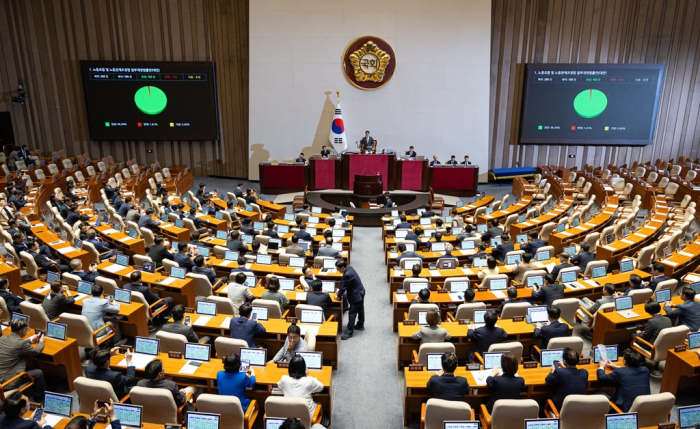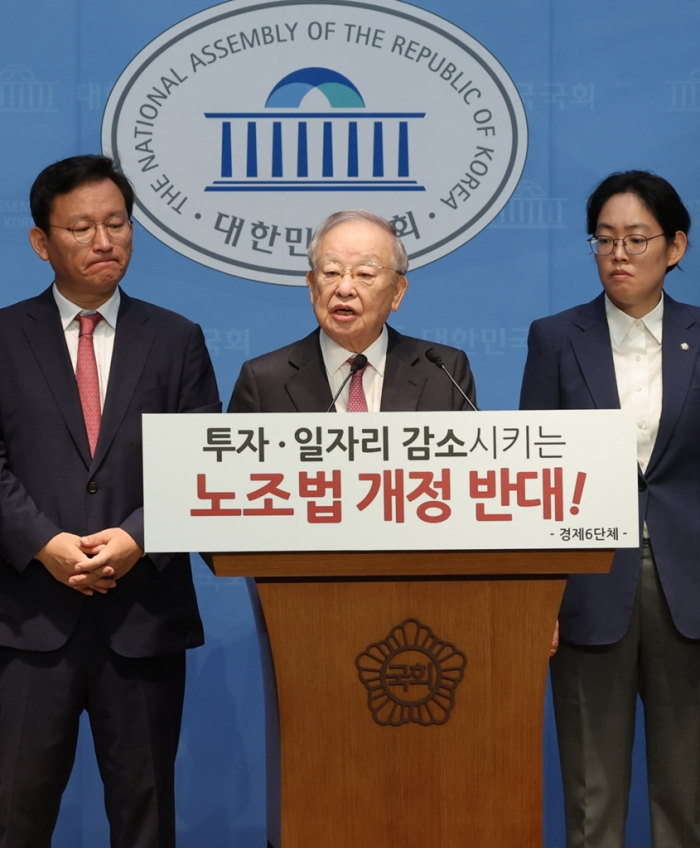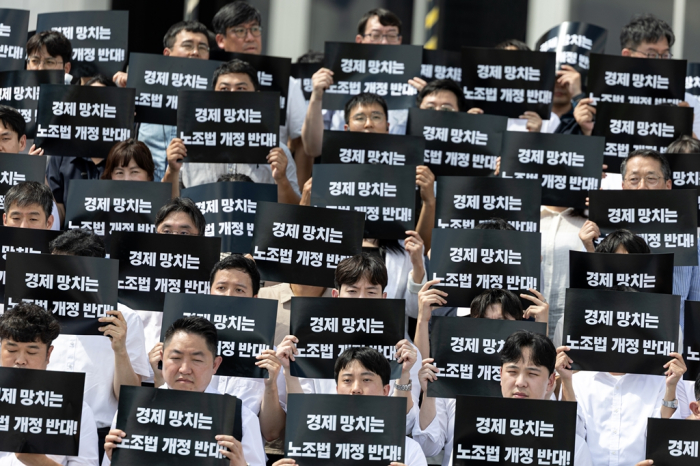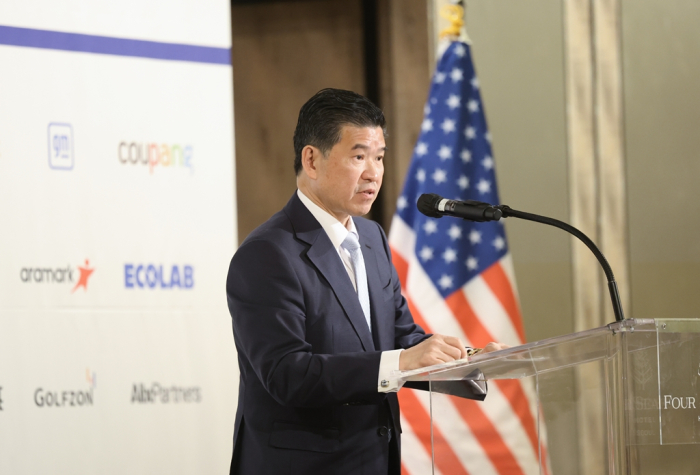
South Korea’s Parliament has approved sweeping labor reforms known as the “Yellow Envelope Act,” inviting a fierce backlash from employers’ groups, conservatives and foreign firms operating in the country, which warned the legislation could trigger a corporate exodus and deepen industrial strife.
The bill, a longstanding priority of President Lee Jae Myung’s Democratic Party and allied progressive blocs, was passed at the National Assembly on Sunday by 183 votes to three, with the conservative opposition People Power Party boycotting the ballot. The minor Reform party cast three opposing votes.
At the heart of the legislation are amendments to the Labor Union Act that broaden the legal definition of “employer” and expand the scope of labor disputes to include managerial decisions such as restructuring or plant relocation.
The bill, which amends the Labor Union Act, is primarily designed to guarantee the bargaining rights of indirectly employed subcontracted workers.
Crucially, it also restricts companies from claiming damages against striking workers, a practice unions have long denounced as a tool of intimidation.

The law was previously vetoed by the former Yoon Suk Yeol administration but was revived after Lee won the presidential election in June.
TO TABLE MORE SWEEPING AMENDMENTS TO COMMERCIAL ACT
Despite a marathon filibuster mounted by opposition PPP lawmakers, the ruling Democratic party used its parliamentary majority to cut off debate and forced a vote.
The ruling bloc also moved to table a more sweeping amendment to the Commercial Act, dubbed by opponents as an even “tougher” corporate reform.
The bill would impose cumulative voting requirements on listed groups with assets above 2 trillion won ($1.5 billion) and expand independent auditor elections.
The revision to the commercial act is expected to come to a vote on Monday after another round of filibusters.

EMPLOYERS OPPOSE, WHILE LABORERS WELCOME
Business lobby groups reacted with alarm.
Six leading industry associations, including the Korea Enterprises Federation, the Federation of Korean Industries (FKI) and the Korea Chamber of Commerce and Industry (KCCI), issued a rare joint statement condemning the passage.
They called on the government to work closely with the business community during the six-month grace period to “minimize any negative impact on employers.
They warned the reforms could paralyze corporate decision-making, invite legal uncertainty and weaken the country’s manufacturing backbone in autos, shipbuilding and steel.
“The expansion of employer liability and the vague definition of labor disputes will inevitably trigger endless litigation,” the statement said, urging Parliament to introduce supplementary legislation to limit the fallout.
Some big companies expressed concern that the broadened definition of labor disputes would make virtually all managerial decisions subject to strike action.

“Almost every business judgment affects working conditions in some way. This law essentially undermines management’s constitutional rights,” said an executive at one of Korea’s top four conglomerates.
Executives also cautioned of possible delays and cost overruns in construction and heavy industry projects, where rival labor federations frequently clash.
Labor groups, however, welcomed the bill’s passage, with the Korean Confederation of Trade Unions (KCTU) calling it the result of two decades of “activist sacrifices.”
POSSIBLE EXIT OF FOREIGN FIRMS?
Representatives of foreign companies operating in Korea expressed their concerns, saying the new law would erode foreign investor confidence.

Some multinational firms have hinted at reassessing their Korean operations.
Hector Villarreal, chief executive of GM Korea Co., the Korean unit of General Motors Co., has asked the Korean government to reconsider a controversial pro-labor “yellow envelope bill” ahead of its passage in parliament.
Industry sources said Villarreal requested on Thursday during a meeting between labor ministry officials and executives from the automobile, shipbuilding and steel industries.
Expressing serious concerns over the bill, Villarreal reportedly said Korea already carries high risks in corporate-labor relations and warned that GM may reassess its Korean operations if business conditions worsen in Korea.

Speculation about a possible GM exit has been growing amid sluggish sales, a lack of new models, and a 25% US tariff on imported vehicles imposed in April.
GM Korea ships about 85% of its vehicles to the US market, with vehicles assembled at its Korean plants subject to US tariffs.
Last month, the American Chamber of Commerce in Korea (AMCHAM) and the European Chamber of Commerce in Korea (ECCK) raised concerns that the Yellow Envelope Act would create substantial legal and operational burdens for global businesses operating in the country.
“A flexible labor environment is essential to strengthening Korea’s competitiveness as a business hub in the Asia-Pacific region,” said James Kim, chairman and CEO of AMCHAM.
By In-Soo Nam
isnam@hankyung.com
Jennifer Nicholson-Breen edited this article.















